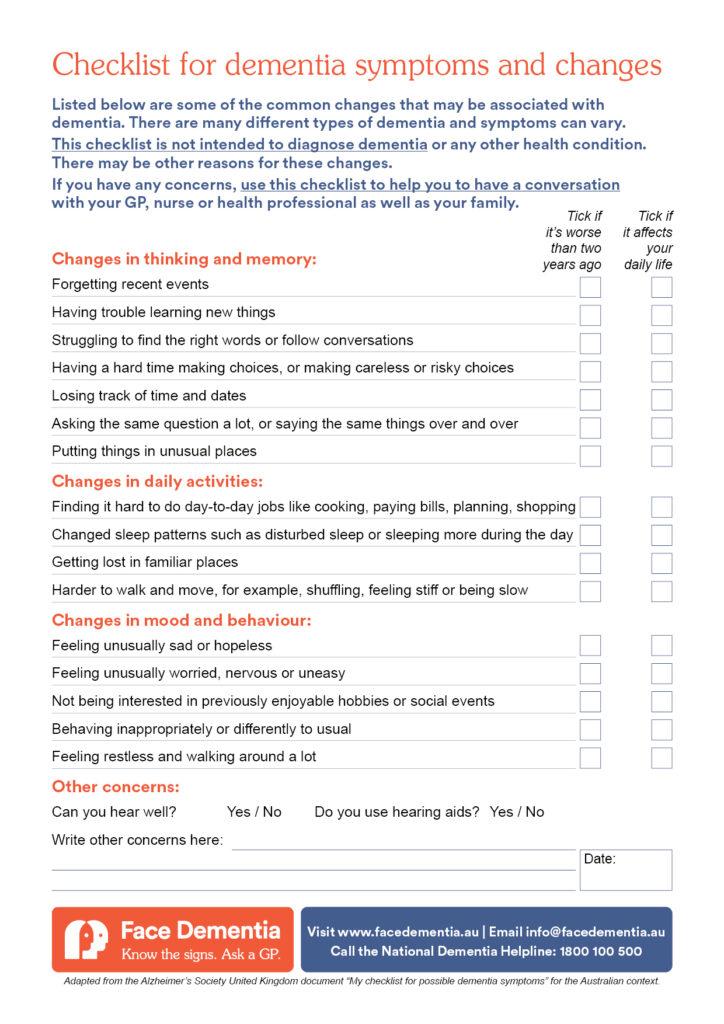Benefits of getting an assessment
If you’ve noticed changes, ask a GP as soon as possible for an assessment.

Find out if there is no cause for concern
After conducting memory and thinking and other health checks, your doctor might tell you that the symptoms are not dementia. For most people, this is great news.
Find out if the changes are dementia or are due to another cause
Dementia-like symptoms can be caused by depression and stress, sleep apnea, infection, vitamin deficiencies, thyroid or hormonal disorders, a brain tumour or other medical conditions.
The cause of the changes may be treatable and reversible
When causes of changes are treated, this may reduce or completely stop the symptoms.
If the changes are dementia, get treatment to slow progression, and support to continue living life
Medications, rehabilitation, subsidised healthcare and services help people living with dementia and families to continue living their lives. See Benefits of a diagnosis, and visit Dementia Australia who offer a range of support services. Also see the Forward with Dementia website, with stories of people living well with dementia.
Have a health professional monitor the changes
If your doctor is unsure of the causes of the changes or whether it is dementia, they will usually ask you to come back for a second assessment in 6 or 12 months. The doctor will monitor if the symptoms are getting worse over time which might suggest that there is a problem, or whether the symptoms are stable.
Find out ways to improve your brain health and reduce your risk of dementia.
Your doctor can give advice on ways to improve your brain health and reduce your risk of dementia.
Don’t delay!
If you, or your loved one, is experiencing changes in thinking or difficulties with every-day life activities, it is important to visit a GP as soon as possible to discuss these concerns. Take a copy of the Checklist for dementia symptoms and changes:
Some people delay visiting a GP because they don’t want to acknowledge the changes or know if they have dementia. However, avoiding the GP will not make the changes go away.
The following pages may help you to take the first steps to face dementia:
- Talk to someone about getting an assessment
- Get family support for an assessment
- Ask a GP
- Face your fears about dementia diagnosis.
This 3-minute video by Dementia Australia shows some experiences of people living with dementia, and their carers, and also provides insights of GPs.
